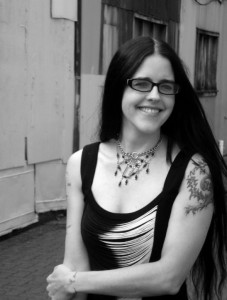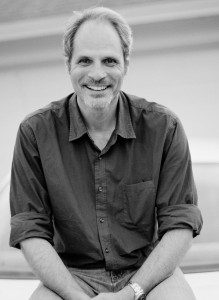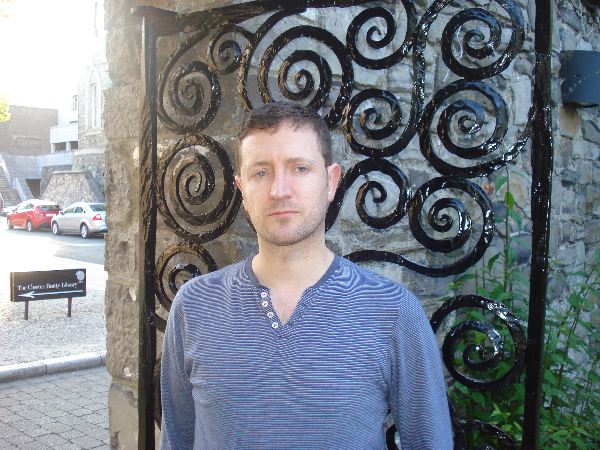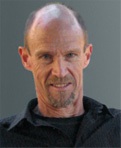
Jennifer: Okay. So. Your short piece “Mirrors Like Silence” is a beautiful lyric-narrative of what is basically a pretty horrific and sad – but all too common – scenario. The “how” it is accomplished isn’t something I think either of us should explore, what I’m more interested in is why you think it’s so essential to tell it and in this particular way. This flash essay, to me has at its heart a ‘there but for sheer, dumb luck go I’ feel to it. The way you write this essay it reads as being without judgment and includes a great deal of love for the character of Carlos. I guess what I’m asking here is what have you gained from telling this story in this way?
Sindu: This story—I never meant to write it. For a long time, I held it in because I felt as if I would be betraying my friend by writing it. This wasn’t my story to tell. If I didn’t think about it, I could push it to the back of my mind. But it was always there, this realization that my friend was hurting, suffering, and that I was doing nothing about it. Indeed that there was nothing I could do about it. I finally wrote the story in this way as an apology, for everything that I couldn’t do for him, for all the ways in which I’d failed him, failed to save him, to catch him when he fell.
Jennifer: That’s interesting. Was there ever a moment when you thought, even as you were writing, there’s a moment when I could have done something. Or is that helpless feeling part of why you kept it to yourself for so long?
Sindu: That helplessness was part of why I kept it to myself. But I did feel as I was writing it that yes, there were things I could’ve done. Many things. In the end, I don’t know if anything would’ve made a difference. But I was young, confused, and wrapped up in my own world. Writing this story was also a way of laying my failings out in front of me, reminding myself that I have to learn from this, and be a better friend in the future.
Jennifer: Do you think that that’s why, as writers, we are so drawn to our own pasts? Also, do you feel as though you were successful?
Sindu: Speaking for myself, I’m drawn to my past because I want to make sense of it. I want to know the why behind all the chaos, all the wild and crazy decisions I’ve made, the ways in which I had no control. Most of my nonfiction is written for or about others. I think writing about my past is also a way to think through my relationships. With “Mirrors Like Silence,” I think on some level, I was successful in making some sense of this time in my life, my friendship with Carlos, and to try and make up for some of my failings.

Jennifer: You sound like you’re speaking for an audience. Real talk, though. Do you think we actually get anything out of that practice, for ourselves, I mean? I think what really happens when we try to “learn from our past” is that we see each new situation as some sort of re-do of an old scenario where we screwed the pooch. Puts a lot of pressure on us as people, don’t you think? What do readers get out of something like that? What do you get from reading about an experience you’ve never witnessed first-hand? Does it prepare you in any way – other than making you kinder, perhaps.
Sindu: I think we’re under a lot of pressure anyway, us writers. We expect ourselves to shit out gold in terms of our work. And yes, I think some of us expect way too much of ourselves as people, too. I know I do. Whenever I mess up, I think, next time, I’ll do it better. Two things wrong with that. One, it makes me eager to move onto the next time, instead of fixing this time. Two, I have very high expectations of myself going forward, and of course I usually fail.
Jennifer: God. This is good shit. Please, continue.
Sindu: As readers, I think it gives us a sort of perverse pleasure to know that we’re not the only ones who ever screwed up. I do think it makes us kinder, able to forgive people easier for their failings because we’re eager to have them forgive us, too. But it messes with our internal moral compasses, and I find that writers are often not as rigid in their moral structures. That can be good or bad, depending on whether you need to hide the body or investigate the murder.
Jennifer: While I had a huge, out-loud chuckle at that last part (hide the body or investigate the murder! Hilarious!) I want to quibble with it, too. I suppose that’s because I want forgiveness for myself, too. I also kinda want to burn down the world because I have to ask for forgiveness for “letting the soft animal of my body love what it loves.” It seems criminal, in some ways, to tell someone ‘no, you didn’t follow the rules, so you can’t have what you love or want.’ It seems to me sometimes ,in my darkest moments, that morals aren’t about anything but possessiveness. Then again, if I had stuff to lose, I’d have a different stance on the issue. Maybe. Probably.
Sindu: I think you’re onto something with the possessiveness. I think it’s more than that. I think it’s about control. This idea of morality is about control. We are in control of our actions, but not in control of our desires. As writers, I think control is something we have to learn to give up. We have to be willing to give up control and imagine someone else’s consciousness, their desires and actions, and that kind of mental intimacy (let’s call it that) leaves a mark on our own personalities. We get darker, moodier, angrier as we realize that everyone’s reality is valid, that self-discipline is a myth sold with a side of hope.
Jennifer: Control. I’m circling back to that. Mostly, what I’m curious about is how you think that applies in fiction or / and non-fiction. Isn’t the appeal (or part of it, anyway) of fiction-writing the fictive imagining of a real(ish) scenario, the idea that we can make the events go the way we want them to?
Sindu: As someone who primarily writes fiction, I feel more in control when I’m writing nonfiction. I can take an angle, slant the right details, and tell it all with the lens that I want. I can turn a real scenario into whatever I want using my pithy word-smithing. But when I’m writing fiction, I feel as if I’m just barely keeping up, as if things have to happen in a certain way, and even my authorial decisions aren’t in my control–that’s just how they have to be to write the good story. It does sound all New Age mambo-jumbo but when writing fiction I often feel like a journalist stumbling along in the dark, trying to get it all down.
Jennifer: Interesting. So in non-fiction you’re examining a stationary object, and in
fiction you feel like you’re chasing a rabbit?
Sindu: Yes! I love that. That’s exactly what it’s like. Because nonfiction has already happened, it’s like playing with Play-Doh. It’s a certain color, and there’s only so much of it. I can shape it how I want. But fiction’s like pinning down water.

Jennifer: That’s a good one, too. You’re just shaping the elements that already exist to show yourself and the reader something about that situation or person or moment, right? It sounds to me like that’s kind of how it goes. Most of the time. Poetry feels more like the stationary object thing.
So, here’s an interesting thought. Maybe a chicken and egg question, but here goes: Do you think we seek out diverse experiences to give us more “Play-Doh” to work with (in non-fiction, poetry, fiction) or do we turn to writing because that’s the tool we best know how to use to make sense of those experiences? Or maybe I should ask which was the case for you?
Sindu: I think it depends heavily on the person. There are the writers that backpack through Africa and stay in European hostels, traverse red light districts in Thailand. Then there are writers that camp in their own backyards. For me, I seek out diverse experiences because that’s part of my personality. I rarely mean to write about them, and often never do. But at the same time, those experiences get added to the big pot of my life, and are there for me to draw on when I need that one brick-wall-smashing detail. There’s something to be said of the depth to which you know your own life though, and I find that depth is what is really beautiful about writing. So I tend to stick to the experiences that I’ve marinated in for a while, because I’m able to dig deeper, get at harder truths.
Jennifer: You sound a little bit like Ted Kooser. He tells the poets that we need to read and experience as many kinds of poetry as we can, and after a while we become such a rich stew of our experiences and readings that no one element is distinguishable from the others.
Sindu: I agree, but when extrapolating that idea to the experiences we have in life, I think we must also be careful to distinguish between our experiences first-hand, and the experiences of those close to us. That’s an easy line to blur and cross.
Jennifer: Yeah, I agree. I always break out in a rash when I read persona poetry about actual people written by someone who never knew them. I’m not sure why, except that it feels like a kind of wanton appropriation of another person’s experiences.
Sindu: It is. One the one hand, I do think as writers we can step into other people’s shoes, but it’s a fine line. It has to be done with care, and a whole lot of love. And, when the writer has power and privilege that the subject doesn’t, the writer is also responsible for having a working knowledge of the historical context of that power.
Jennifer: I agree. But even when those things aren’t an issue, often the practice of
putting yourself in someone else’s shoes (in non-fiction or poetry especially) feels as though you’re using someone, reducing them to a vehicle for your own desires and expressions.
Sindu: You are. That’s what we do as writers, use everything and everyone around us to
tell our truths. I think it’s just something we have to make peace with.
Jennifer: I have to think about that. It might be why I am so much more attracted to
poetry and (distantly) non-fiction.
Sindu: As opposed to fiction?
Jennifer: Yes, as opposed to fiction. I have had some experience with being used and didn’t like it much. Don’t want to do it to anyone else. Although it is very, very easy to do.
Sindu: It is easy.
Jennifer: It is also a thing we have to handle responsibly. Alrighty, I think you should get the last word in here. We’ve been talking a lot about control and use and all those things. Now, do you have any thoughts for your reader? Was there something you wanted to ask me about the story?
Sindu: I’m curious about one thing. Does the story function as an apology?
Jennifer: Yes, it functions as an apology in the sense of a “defense” and it also reads as something of a mea culpa. You are saying “this was me, being stupid and young and having no idea how to listen, how – if at all – I could help you” and it is clear that you love your friend very much.
Sindu: Carlos hasn’t yet read the story. I’m scared to give it to him. I’m scared that he won’t understand it as a mea culpa. I hope I’m not scared soon.
Jennifer M. Dean currently writes, lives, and works in Lincoln, Nebraska where she received her MA in Creative Writing from the University of Nebraska-Lincoln. She is the Associate Editor of Split Rock Review, and has work published or forthcoming in The Battered Suitcase, Torrid Literature, and Red River Review.























